President Xi Jinping meets with Czech President Milos Zeman in Beijing, April 28, 2019. [Photo/Xinhua]
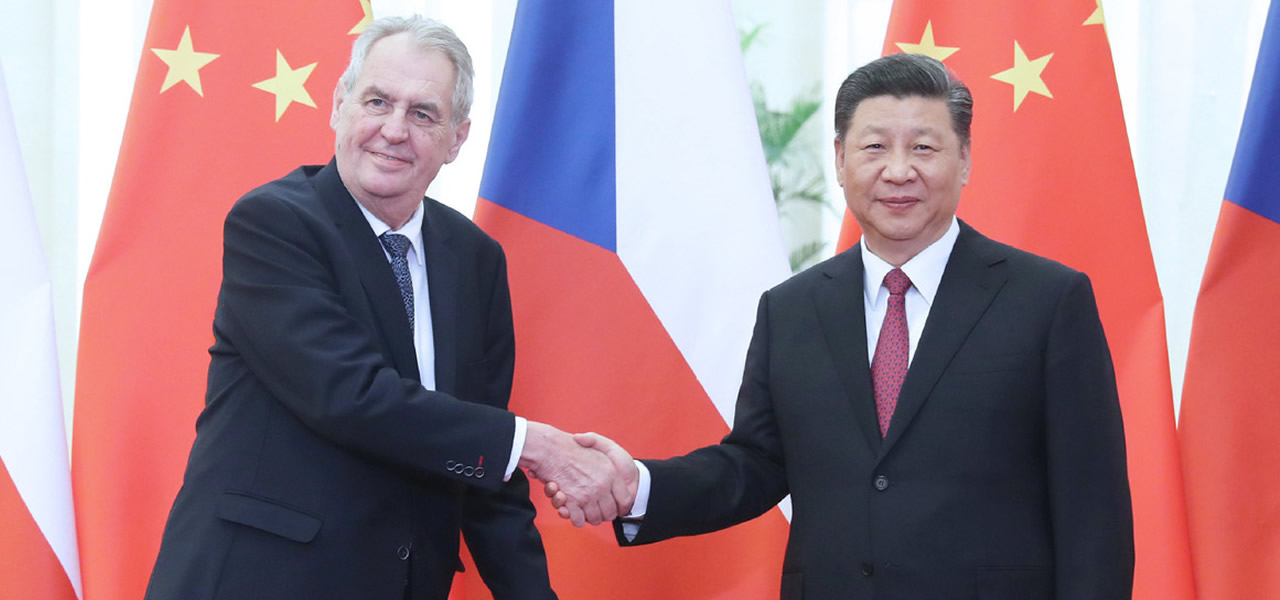

President Xi Jinping meets with Czech President Milos Zeman in Beijing, April 28, 2019. [Photo/Xinhua]
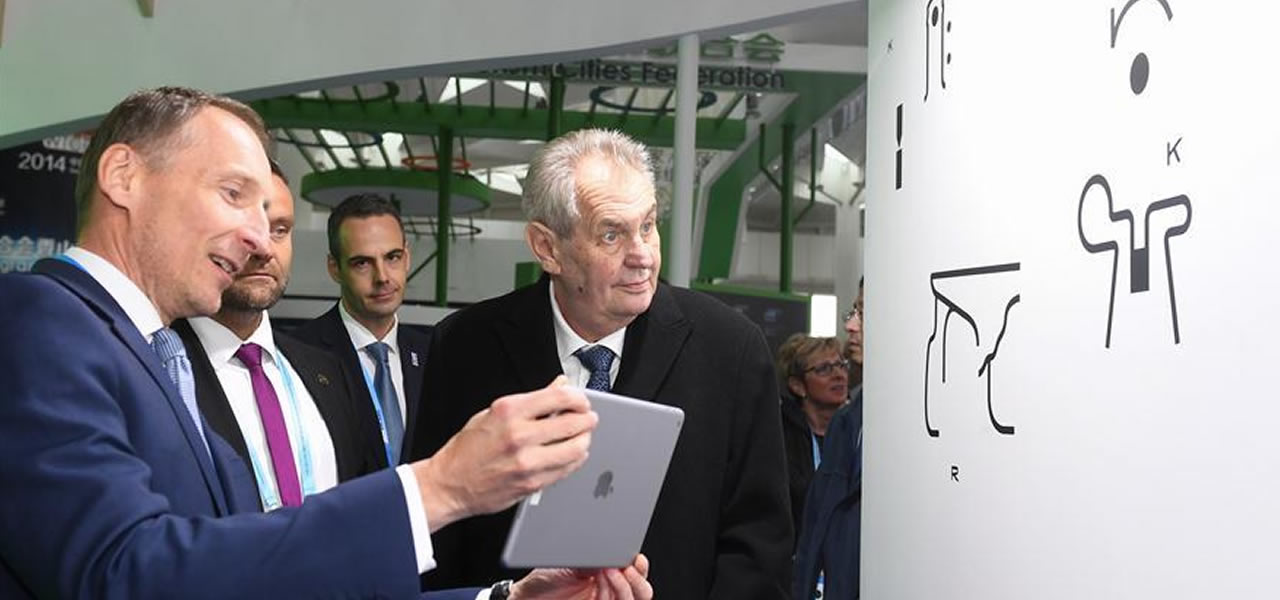
Czech President Milos Zeman visits the Czech Republic booth at the International Pavilion of the International Horticultural Exhibition 2019 Beijing, in Beijing, April 28, 2019. [Photo/Xinhua]
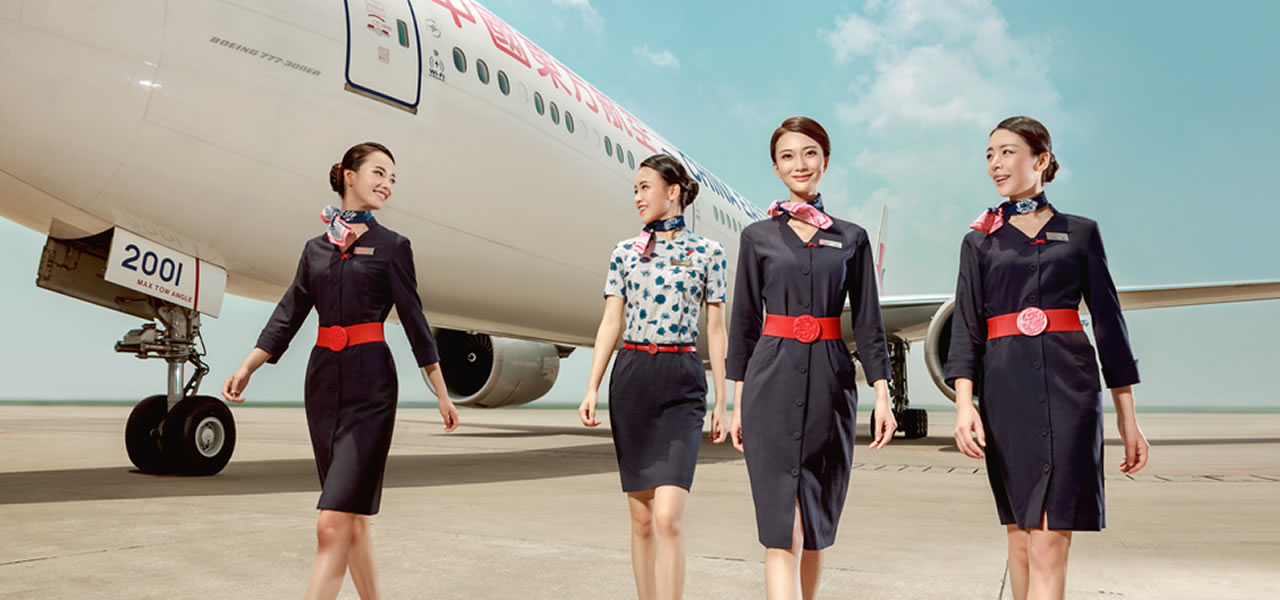
China Esteran Airlines
Asia Pacific News Agency (Macau news) At the 7th Macau International Innovation Exhibition, which ended on October 13, 39 secondary vocational students from Zunyi rural area, Guizhou Province, China, won all the prizes for their ten inventions. It has won the only special award of the student group, 2 gold awards, 4 silver awards and 4 bronze awards. Its outstanding invention and creativity have been greatly praised by the international jury, which shows the extraordinary strength of Chinese youth’s invention and creation.
Zunyi Secondary Vocational School Is the Largest Exhibition Team
This invention exhibition is one of the important activities of “Macao 2019 Science and Technology Week and National Science and Technology Innovation Exhibition”. It is understood that the technology week is organized in cooperation with China’s “13th Five-Year Plan”, “One Belt and One Road” and “Guangdong, Hong Kong and Macau”. The exhibition attracted more than 20000 visitors from China, Hong Kong, Macao and Taiwan, as well as foreign countries.
Science and technology week is sponsored by the Science and Technology Committee of the government of the Macao Special Administrative Region, supported by the Ministry of Science and Technology of the People’s Republic of China, and organized by the Science and Technology Development Fund of the Macao Special Administrative Region. Science and technology week is an annual large-scale public welfare science popularization activity in Macao. The exhibition venue covers an area of 12000 square meters.
The contents of the national science and technology innovation exhibition include nearly 40 national innovative technological
achievements and models in aerospace engineering, polar scientific research, deep sea exploration, VR interactive experience and major achievements in the 70th anniversary of the founding of new China. In addition to organizing competitions, lectures, performances, workshops and Macao’s local science popularization achievements this year, it also shows Macao’s important scientific and technological achievements and progress since its return to the motherland 20 years ago.
In addition, the 7th Macao International Innovation and Invention Exhibition, 2019 Macao Youth Innovation Challenge, 2019 Guangdong Hong Kong Macao Youth Innovation Observation Competition and a Large-Scale Calligraphy and Science and Technology Event that hit the Guinness world record were held simultaneously.
In the 7th Macao International Innovation and Invention Exhibition, there are more than 330 invention works from domestic provinces and cities as well as more than 20 countries such as Indonesia, Portugal and Britain. Among them, Zunyi South Liquor Secondary School and South Technology and Technical school from Zunyi City, Guizhou Province specially organized 39 students to participate in the exhibition, which is the largest exhibition team.
The School Located in Rural Area Offers the Course of Innovation and Invention
Zunyi Southern Liquor Secondary Vocational School and Southern Science and Technology Technical School are established with the support of Zunyi Municipal Party Committee and Municipal People’s Government, the promotion of Huichuan District Party Committee and District People’s Government, and the help of Municipal Education Bureau, Huichuan District Education Bureau, Municipal Human Resources and Social Security Bureau and Huichuan District Human Resources and Social Security Bureau.
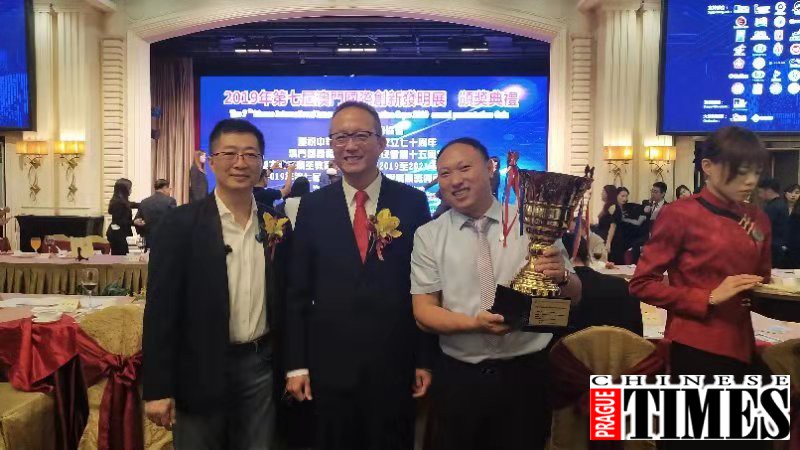
The school was founded in 2013 and 2017 respectively, breaking the rules and creating an innovative and efficient 622193 school model to cultivate craftsmen. The school is located
in Tuanze Town, Huichuan District, Zunyi, surrounded by mountains and rivers, covering an area of more than 100 mu and a building area of 30000 square meters. In 2019, the school has more than 1300 registered secondary vocational students and 3229 socialized training students (the total number of poor labor gratitude and inspirational education and training is nearly 3029, and 200 gratitude and inspirational teachers are trained in Zunyi City). It is a school with initial scale.
In order to promote innovation and entrepreneurship services, the school has directed more than 300 people for innovation and entrepreneurship personnel in Zunyi. There are computer decoration design, Internet marketing, liquor marketing, liquor brewing, e-commerce, aviation, high-speed rail crew, early childhood education (preparatory) and other specialties. At present, there are more than 90 faculty members (including part-time teachers), including 6 faculty members and 51 faculty members. Among the 51 faculty members, there are experienced professional teachers, such as decoration and decoration engineers, senior liquor brewing engineers, marketing professional teachers, senior entrepreneurship consultants, senior professional titles teachers and intermediate professional titles teachers.
Not only that, the school innovates its school running characteristics, especially its advanced 622193 school running mode, such as “national defense education system, successful (entrepreneur) tutor system, innovative invention education system, eloquence training system” and other advanced school running modes in the nine major training systems, which greatly helps students gain self-confidence, improve their innovation ability, and thus students are changed to promote their love of vocational education. The school has been widely praised by all walks of life.
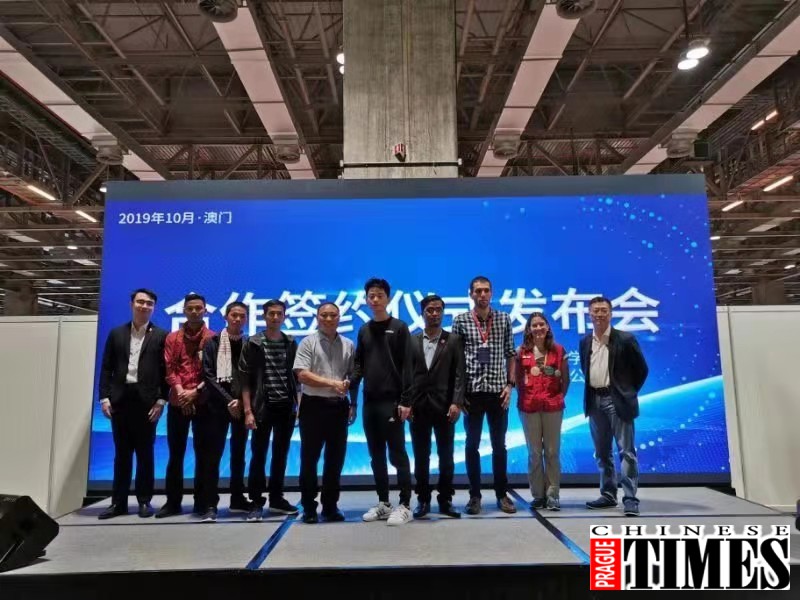
In 2017, on behalf of Guizhou Province, the school participated in the National Innovation and Entrepreneurship Efficiency Competition hosted by the Ministry of Education, the Ministry of Human Resources and Social Security, the Central Committee of the Communist Youth League, etc., and won the first prize.
This year, with the support of Chongqing Institute of Innovation and Invention, founded by Teng Hung-chi, Taiwan’s “king of invention”, the school will integrate innovation and invention into the school running and education management system, and build an international brand of innovation and invention and entrepreneurship education as their development vision; in terms of innovation and entrepreneurship and innovation education, the school has an excellent training system and achievements.
Award-winning Students Lead China’s “Invention Tide”
Among the 39 students who participated in the exhibition, they carried 10 inventions, including Water Level Monitoring Sensor, Thermostat Helmet, Convenient Purified Water Cup, Lazy Toothbrush, Multi-functional Oil Removing Lipstick Cleaning Device, Integrated Charger, Colorful Interesting Water Cup and Self-cleaning Projecter Screen.
After international and domestic review and evaluation for many times, it finally won the only student group special award, 2 gold awards, 4 silver awards and 4 bronze awards among the 12 special awards set by the organizing committee. According to Gui Guanghui, the school’s president, the competition has created a total of ten invention awards. “It’s the only team in the show that has made history,” he said.
After winning the prize, the school held a signing ceremony and cooperation conference at the exhibition site, and held a meeting with the students from Taiwan.(News sources:Asia Pacific News Agency )
Asia Pacific News Agency (Author/Ganga Prasad Upreti) China is the passionate brethren of Nepal. This is the pleasure of we Nepalese to embrace to welcome the President of the People’s Republic China Mr. Xi Jin Ping today. This is the initiation to enhance peace and prosperity together with dignity not only in this region but also in the global. China, collaborating and compassionate for the greater cause of humanity together with all the stockholders beyond the geographical and cultural frontiers. President Xi Jin Ping is not only the visionary leader, but also a man of passion with compassion and humanity.
Nepali Culture: Guest is the God
In the Nepali culture guest consideration as the god. This is the values and tradition. This is one of the most important essences of the cultural values. The brethren, guest, and the President of People’s Republic of China, Mr. Xi Jin Ping, for the compassion, respected to the full of the dignity and the beings to enhance humane. It is the cultural norms. We know that we keep our home environment clean and peaceful always. Keeping the courtyard clean in any special cultural festivals and on the occasion of welcoming the guests is also our cultural value. Flowing this tradition and value now the capital city Kathmandu is clean and peaceful to warm welcome to the President of the People’s Republic of China, Xi Jin Ping.
Collaborative initiatives with Xi Jin Ping’s visit
The president Xi Jin Ping envision a collaborative and cooperative sense of coexistence respecting dignity and values with the communities in the world. This is the essence of Xi Jin Ping thoughts and it’s very important to this world. Belt and Road Initiative is the way to proact for the global development.
Nepal is a landlocked country. The country endorse a transit treaty with the China in the recent days specifically after the embargo from India, Particularly after the inauguration of the constitution in 2015. It needed Infrastructure development, however it was not possible from a state point of view, for that very reasons we needed cooperation and collaboration. This initiative not only mediated and facilitated with the historical visit of the President Xi Jin Ping and the Chinese love and passion. I hope this will facilitated the access to the north, and to the world. The BRI is most important connectivity not only to China and India, but also to the world, not only by terrestrial network but also to the sea. This railway to access through the Himalayan corridor is the most important to the south Asian communities, but also it’s a global initiate for peace and prosperity. Geopolitics engaged with such endeavors not only go beyond the frontiers, but also permeated through other endeavors. However, the perspect entailed so far with the geopolitical and international relations. It is one of the most important connectivity in the world not only for the economic development, but also for the human security and peace. Enabling connectivity which China and Nepal overland transportation network impacts the international relations East Asia, Middle East, South Asia, West Asia the trade with the Indian continent is assured. Despite, one of the opinion is that BRI might corrugate the Nepalese and the Indian relation adversely.
This is why, this is the dream. To materialized this dream now the communities, China and Nepal are collaborating. This connectivity not only transforms the lives of the south Asia, global humanity. Connectivity is the key of the economic development. In the contemporary world trade is more important than politics. How we learn from the Chinese is that, first develop the economic foundation, than prosperity is possible. There will be peace and we can live with peace in together with prosperity.
We are talking about the construct Lhasa-Kerung railway line. India also wants to use this railway line for trade with Europe, the Middle East, and West Asia. At that point, Nepal will be a transit point in this region. That’s why this railway line will be a beautiful opportunity for Nepal. Communist Party of China also knows that the gate of Nepal has to be opened to make south Asia prosperous. We know very well what is our priority and what the important role of Nepal regarding the BRI. We also know that, according to our foreign policy, we have to balance our neighbors based on our national interests. Our current government is very clear and conscious on it.
BRI and President Xi’s visit to Nepal
BRI is the initiatives to collaborate and cooperate with all the neighbors. Till date, there are two types of model experience by the humankind. The one is to earn, at the same time demolished the others. Next, mutual collaboration and coexistence is the basis of the conduct. The first model impose the hegemony. That not prevails, nor prosperity. It only makes many hungry, whereas some fulfills. We are happy to see the second vision of the Chinese leadership.
It is important to have regional peace if you want global peace purposely. We joined with the BRI in 2017. It’s was late but now situation is very good for work on it. We have stable government and strong leadership as well.
BRI and the others
At the beginning it was impossible to conduct the railway system from Qing Hai to Lahsa by many western foreigners, however, Chinese knowledge, skill and technology embark on it to make it success it now running on full phase. That is the landmark to recognized the Chinese skill and technology in the world. It’s getting a high global credentials.
Still we have discourses in Nepal and India about the prospect of BRI is one of the ambitious projects to indept around the world. My point in this regard is that BRI is within the Asian Infrastructure Investment Bank and whereas Asian Development Bank and World Bank in the other side. Let see these two perspectives. What are the toms and conditions? However, Do you see any toms and conditions of the BRI? We can compare by the interest rate from World Bank, ADB and BRI. It’s great difference. For that reason and many others it is a fictitious. These ways are only to enhance president Xi might help create a positive attitude to get through BRI a collaborative mutual development and peace. Positive attitude and implementation with faith might be a paradigm shift not only development of the Nepalese communities, but also to the region and the world. For that many reasons and the others President Xi Jin Ping’s visit to Nepal is one of the important milestone.
About Author : Ganga Prasad Upreti is currently Chancellor of Nepal Academy. The academy is a national institution of Nepal for the promotion of the languages, literature, culture, philosophy and social sciences of Nepal. The academy commissions research and aims to promote the development of cultural and intellectual endeavors by coordinating national and international activities. He was the former chief of the World Language College, Kathmandu. He has written more than a dozen books including about Nepal China relations.
President Xi Jinping, also general secretary of the Communist Party of China (CPC) Central Committee and chairman of the Central Military Commission, reviews the armed forces during the celebrations for the 70th anniversary of the founding of the People’s Republic of China (PRC) in Beijing, Oct 1, 2019.
An attendee views an exhibit at an event in Beijing marking the People’s Republic’s foundation 70 years ago. [Photo/Xinhua]
Chinese people living abroad on Saturday praised their motherland for its economic takeoff, elevation in global status and technological advancements.
They gathered at an exhibition in Beijing marking the People’s Republic’s foundation 70 years ago.
Chen Minghua, a US citizen born in the coastal province Fujian in 1948, said he was most impressed by the colored signs and installations paying tribute to China’s successful testing of atomic and hydrogen bombs in the 1960s and the launch of its first manmade satellite in 1970.
The 71-year-old, whose jobs in the US have ranged from restaurant owner to real estate developer, said China has seen speedy progress in all aspects since he left in 1968.
“I am very proud as an ethnic Chinese,” he said, whose surname translates as “never forget China”.
Chen was one of some 2,000 Chinese emigrants to about 130 countries and regions who flew into Beijing for the founding ceremony on Tuesday at the invitation of government.
As part of their itinerary, they were invited to the display, covering over 155,000 square meters at the Beijing Exhibition Center.
It comprises five chapters showing how Chinese people, under the leadership of the CPC, established and developed socialism and worked to build a modern socialist country.
Ji Zhihai, a Chinese national living and working in Italy since he went there for study in 1986, said China has transformed beyond recognition in a short time, benefiting Chinese emigrants doing business overseas through its Belt and Road Initiative (BRI).
The former law student, elected a legislator in the Italian city Forlì in 1997, said he had been using his expertise to help Chinese communities there, hoping that they can be successful by being diligent, just as he has been.
Li Rujiang, an exporter of Chinese commodities to the Czech Republic, said many overseas Chinese people like him have demonstrated solidarity with the country and they wish to be involved in China’s global strategies like the BRI.
“I hope that we expatriates could get more involved in the BRI,” he said, which he said will be beneficial for all in involved.
China has more than 60 million of its people living abroad, scattered across more than 200 countries and regions, central government figures show. They have long been regarded a major part of the Chinese nation and ambassadors of Chinese culture and friendships.
A worker of New Zealand dairy company Theland works in the ranch. The company has seen its sales revenue surge 309 percent during the first quarter of this year, after its presence at the first CIIE. [Photo/China Daily]
As the first batch of exhibits set sail for the second China International Import Expo, companies attending the show have pinned high hopes on the upcoming six-day exhibition.
According to the CIIE bureau, the first exhibits for the show, which will be held in Shanghai from Nov 5 to 10, were shipped from northwestern Italy’s Genoa Port on Sept 2. Exhibits from Vanuatu and Czech Republic were also shipped in early September.
The shipment from Italy is mainly made up of cosmetics, nutrition products and traditional Italian bread, which need to be delivered under constant temperatures throughout the journey to China. The products are expected to arrive in Shanghai in early October.
To ensure that exhibits are handled properly and efficiently, COSCO Shipping has specially designed a one-stop solution that covers clearance, goods pickup, packaging, temporary warehousing and cold-chain shipping, said Wang Songwen, vice-general manager of COSCO Shipping Europe.
Up till now, more than 3,000 companies from over 150 countries and regions have signed up for this year’s show, many of which participated last year.
UK luxury electrical wiring accessories manufacturer Focus SB brought its products to China for the first time via last year’s CIIE. Many of the products ordered during the show were for the new VIP lounge at Shanghai Pudong International Airport which was recently completed in early September.
According to Focus SB, the company forged cooperative deals with five Chinese domestic dealers last year and will double its exhibition area at this year’s expo.
During last year’s CIIE, New Zealand dairy company Theland signed contracts worth over 1 billion yuan ($141 million) during the six-day show. Its signature product-the 72-hour fresh milk shipped directly from New Zealand to China-achieved sales topping 80,000 bottles per week earlier this year, which was more than 26 times the volume registered before the show.
“Theland saw its sales revenue surge 309 percent during the first quarter of this year, and this can be largely attributed to the company’s presence at the first CIIE,” said the company’s chairman Sheng Wenhao.
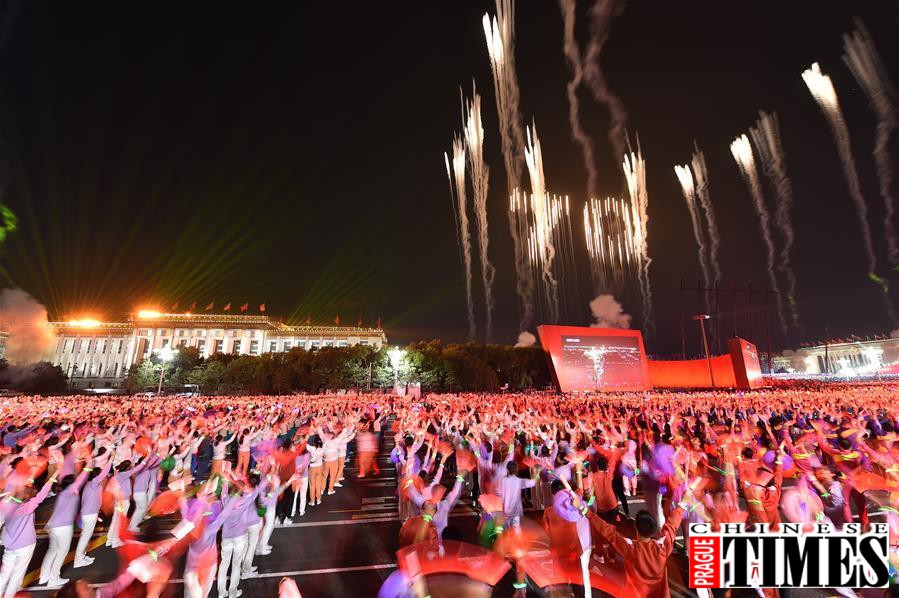 A grand evening gala is staged on the Tian’anmen Square to celebrate the 70th anniversary of the founding of the People’s Republic of China, in Beijing, capital of China, Oct 1, 2019. [Photo/Xinhua]
A grand evening gala is staged on the Tian’anmen Square to celebrate the 70th anniversary of the founding of the People’s Republic of China, in Beijing, capital of China, Oct 1, 2019. [Photo/Xinhua]
Leaders of foreign countries have sent a multitude of congratulatory messages to Chinese President Xi Jinping to convey their best wishes on the 70th anniversary of the founding of the People’s Republic of China.
Iranian President Hassan Rouhani extended his sincere congratulations to the friendly Chinese people. Iran is willing to work with China to continuously enhance the common interests of the two countries and safeguard world peace and stability, Rouhani said, adding that he wishes China prosperity and its people happiness and health.
Algeria’s interim President Abdelkader Bensalah wishes the friendly Chinese people continuous development and progress. As Algeria and China have established a comprehensive strategic partnership and are working together on the Belt and Road Initiative, the prospects for the development of bilateral relations will be even broader, he said.
Kuwaiti Emir Sheikh Sabah Al-Ahmad Al-Jaber Al-Sabah said China has made great development achievements in past decades, which has consolidated its core position in the world political and economic arena. He wishes the friendly country and people continuous progress and development.
On behalf of himself and the Iraqi people, Iraqi President Barham Salih said that he would like to extend his sincerest congratulations and best wishes. Iraq is willing to continuously deepen its friendship and cooperation with China, and fulfill the two peoples’ expectations of prosperity and development, he added.
Israeli President Reuven Rivlin said that under the leadership of the Communist Party of China, China has made great achievements that have attracted worldwide attention. Israel attaches great importance to good relations with the nation and is willing to work with it to continue to build and strengthen their innovative comprehensive partnership, he said.
Ugandan President Yoweri Museveni said that the old generations of Chinese leaders, including Chairman Mao Zedong, risked their lives and worked hard for the freedom and prosperity enjoyed by the Chinese people today. “I am willing to commemorate their contributions and courage with you,” he added.
Nigerien President Mahamadou Issoufou said that under the leadership of the CPC, the Chinese people have built China into a prosperous, democratic and respectable country in the past 70 years, and that he believes the “Two Centenary Goals” and the Chinese Dream of national rejuvenation will certainly be realized.
Ghanaian President Nana Akufo-Addo said the Ghanaian people join the Chinese people in celebrating the birthday of the PRC, and in recalling the heroes and martyrs who have laid the foundation for the development and progress of China. China’s implementation of reform and opening-up has accelerated its transformation and brought more benefits to its people, he noted.
Mozambican President Felipe Nyusi said China enjoys a long history and a civilization dating back thousands of years. He added that the PRC, since its founding 70 years ago, has set an example in making tremendous achievements in various fields, especially in reducing poverty and improving its people’s livelihood.
Namibian President Hage Geingob greeted the brotherly Chinese people with the warmest congratulations, saying that Namibia will continue to develop its relationship with China.
Serbian President Aleksandar Vucic said that China, guided by its visionary leaders, has grown into one of the most respectable partners in the world and has made important contributions to world peace and development, adding that he believed the country will surely realize the Chinese Dream.
Czech President Milos Zeman said that the Czech Republic, together with other countries in the world, has witnessed the growth of the PRC into a major country. He wished the Chinese people even greater success.
Finnish President Sauli Niinisto said that the 70th anniversary of the founding of the PRC was a landmark, and China’s development speed and its rapidly-rising leading role in the global economy would have a broad and positive influence over the world.
Other leaders sending congratulatory messages to Xi include Milorad Dodik, the Serb member of the tripartite presidency of Bosnia and Herzegovina; Slovenian President Borut Pahor; Argentine President Mauricio Macri; Chilean President Sebastian Pinera; President of Trinidad and Tobago Paula-Mae Weekes; Emperor Naruhito of Japan; Sultan Haji Hassanal Bolkiah of Brunei; Myanmar President U Win Myint; Malaysian Supreme Head of State Abdul Halim Mu’adzam Shah; Afghan President Mohammad Ashraf Ghani; King Mohammed VI of Morocco; Tanzanian President John Magufuli; and Eritrean President Isaias Afwerki.
Xinhua
Czech-China TCM Center Prague was visited by very eminent professionals yesterday. Delegation coming from Shuguang Hospital Shanghai came to visit partner, Endowment Fund for Support of TCM and alternatives in Prague.
During this meeting the both parties promoted TCM. Czech organizers were very honored to welcome the top experts, medical doctors from Shuguang. Mrs MA, leading this delegation, has been visiting TCM Center for the third time. She was very pleasantly surprised to see the development and new activities of Czech partners.
Nearly seventy people listened the lecture of Dr. Med. Guan Xin, PhD, Chief Adviser of fund, and then could everybody use the possibility to consult with famous medical doctors personally. All of them, within Mrs. MA, coul treat in Prague for many years and they would have more and more clients here.
TCM is very known in Czech Republic, but there is not accredited education. Only a little bit more than 500 Czech Medicine Doctors is allowed to treat by TCM officially, mostly acupuncture. So it is very important to promote Chinese Medicine Doctors and professional level of TCM treating. To show and present them it personally, their knowledge and care show here, in Prague. Many Chinese and Czech people used to visit Czech-China TCM Center, and ask contact to Dr. Med. Guan Xin, PhD, former Chief Doctor at University Hospital Hradec Kralove. After finishing inter government project of TCM Clinic there, he moved to this TCM Center in Prague. As a Chief Adviser he has lectures here, seminaries and individual consultation for public.
“Our aim is to present the highest level of TCM. We have met the top doctors in Shanghai, Beijing and other cities from China. Many of them have been visiting our Czech-China TCM Center in Prague. The highest level, it means at first Chinese medicine doctors. We prefer to show Chinese medicine doctors, ways of treating, products in original and authenticity. Czech doctors and practitioners could learn by them, to have lectures and seminaries. We could send a few of them to Chinese hospitals, time to time. Our product is informed client. He know, what about original TCM, who is able to offer the professional care, where he could find it. It is the most important information for Czech client now,” said Jan Hovorka, President and Founder of Endowment Fund for Support of Traditional Chinese Medicine and Alternatives.
For everybody, who is interesting to visit this interesting place, connecting relations between China and Czech Republic, is possible to come Opletalova 19, Praha 1. All information you can find on info@nfptcma.cz or 773007597.

PRAGUE – Hundreds of thousands of people rallied Sunday in Prague, capital of the Czech Republic, demanding resign of the Prime Minister Andrej Babis.
The rally in Letna Park, estimated to be attended by more than 250,000 people, was the culmination of a series of demonstrations in recent weeks against Babis, who has faced investigations over alleged fraud and conflicts of interest.
Waving Czech and also European Union (EU) flags, the crowd chanted “Resign, Resign” and “We’ve had enough”. “No Tolerance for Lies and Fraud,” read a banner unrolled by the demonstrators.
A preliminary EU report released by Czech media in May said that Babis might have had a conflict of interest over EU subsidies involving his former business empire Agrofert. Babis denied wrongdoing and accused the EU of trying to destabilize the Czech Republic.
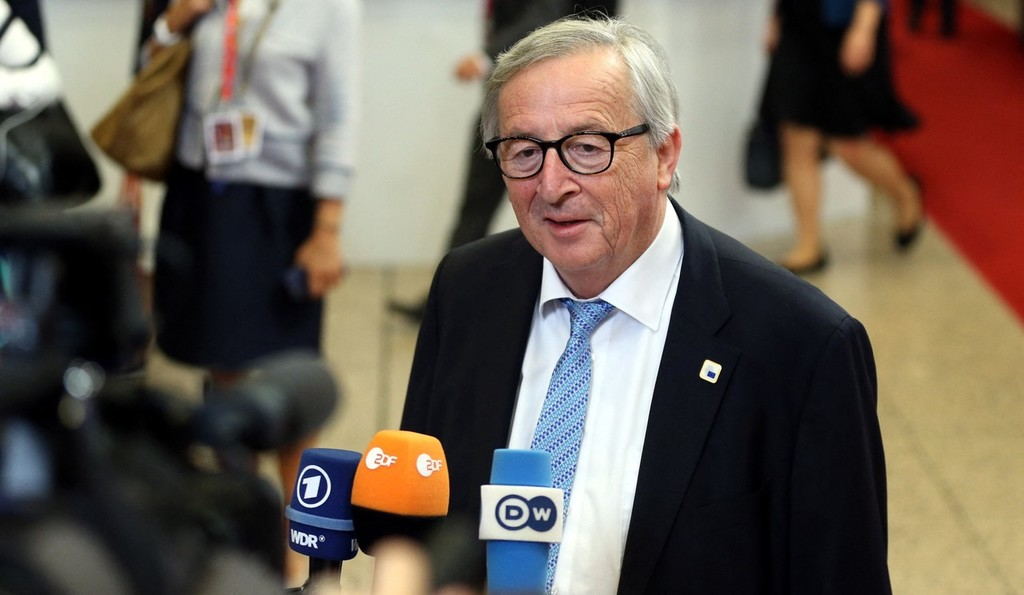
The much-anticipated two-day European Union summit ended on Friday with no progress toward filling the institutions’ top jobs and no consensus on ambitious net-zero greenhouse gas emission target by 2050.
A crisis summit has been scheduled for June 30 in order to fill the posts before the new European Parliament meets in Strasbourg, France, on July 2. Meanwhile, most EU leaders attending the G20 summit in Osaka, Japan, for from June 28 to 29 are expected to hold informal talks on their own issues.
Shada Islam, director of Europe and Geopolitics at Brussels-based Friends of Europe, said she hopes for a quick decision on the EU leadership. “If they keep postponing and are not so decisive, I think we are sending a wrong message to Europeans and to the rest of the world,” she said on Friday.
She said whoever assumes the leadership should be strong and popular enough and able to connect with European citizens who showed the highest turnout in 20 years in the elections for the European Parliament in late May.
“They should be able to work in an efficient manner with world leaders and be strong enough to galvanize worldwide support. We live in a very challenging world, and Europe needs strong and effective leadership,” Islam said.
There have been major disagreements between leaders of the two major member states. German Chancellor Angela Merkel favors the process of lead candidate, known as Spitzenkandidaten in German. She supported Manfred Weber, the lead candidate of the center-right EPP, the largest bloc in the European Parliament, a bloc of which Merkel is a member.
But French President Emmanuel Macron and some other EU leaders oppose Weber to replace Jean-Claude Juncker as president of European Commission.
The fates of other lead candidates, mainly center-left S&D’s lead candidate Frans Timmermans, current first deputy president of the European Commission, and Margrethe Vestager, current European Commissioner for Competition and a lead candidate of Renew Europe, have become less certain.
Vivian Linssen, founding executive director of the International Multidisciplinary Neuroscience Research Center, said even if the leaders will be chosen through the system of Spitzenkandidaten, they have to address the public suspicion and distrust regarding institutions, politicians and bureaucrats.
“The top priority should be to recover lost trust, because without trust, any policy shall fail,” said Lissen, who announced his race as an independent candidate for the presidency of the next European Commission.
Besides a deadlock on EU leadership matters, the summit failed to broker an agreement that would see member states cut carbon emissions dramatically by 2050. Poland, Hungary and Czech Republic refused to sign the text for the net-zero carbon emissions target by 2050.
“I would like to express my regret at this point that a consensus for ensuring a transition to a climate neutral European Union by 2050 was not reached,” said Romanian President Klaus Iohannis. Romania’s six-month presidency at the Council of the European Union will end on June 30.
At the news conference, Tusk also noted that the biggest risks to the global economic outlook are trade and geopolitical tensions.
“We will take this message to the G20 in Osaka, where we will try to persuade our partners to cooperate, rather than threaten one another,” he said.
14 June 2019
Good morning. Welcome to today’s discussion.
The ongoing China-US trade dispute is causing growing concern in the world. The health of relations between the two biggest economies affect not just the interests of the two countries themselves, but also the well-being of the entire world. Everybody is, therefore, a stakeholder.
Unfortunately, since the Trump administration came to office, it has kept taking unilateral and protectionist measures and practiced economic hegemony. In particular, it has frequently resorted to the use or threat of tariff as a weapon against other countries.
Like others, China has been a victim of US trade bullying. To safeguard our national interests, we cannot but respond with forceful measures. Our positions have been laid out very clearly in the two documents before you. One is the white paper on China-US trade talks, the other is the latest research paper from the Chinese Ministry of Commerce on how the US has benefited from its trade with China.
They are intended to give you China’s perspective about the real picture of China-US trade relations. You can find detailed analysis and authoritative statistics in both papers. My colleagues and I are also prepared to exchange views with you about them in the course of our discussion.
To start our discussion, I wish to share with you several observations:
First, trade is mutually beneficial.
China has benefited from trade. That is why we are so committed to opening up. The United States has also obviously benefited from trade.
It would be too simplistic to define trade relations solely by trade imbalance. Such an approach is neither objective nor responsible.
Here I am reminded of what Mr. Roberto Azevedo, WTO Director General said in his speech at the opening ceremony of the first Import Expo in Shanghai last November:
“trade is not a zero sum game, where exports are good and imports are bad. In fact, imports mean greater choice for consumers at lower prices. They mean you can focus on producing those goods where you have a competitive advantage and they mean having a more competitive and more efficient economy. And increasingly imports mean inputs for your own products which will themselves then be exported. This is the reality of global trade. Today, around two thirds of all exports around the world contain imported components.”
Martin Wolf has also pointed out in the Financial Times that “the US focus on bilateral imbalances is economically illiterate.”
Moreover, the US trade deficit has been exaggerated. In fact, this problem has been there for decades.
At present, nearly 53% of China’s trade surplus with the United States has come from processing trade. Twenty years ago, it was 70%.
I remember very well that in April 1999, and that was still before China’s accession to the WTO, then Chinese Premier Zhu Rongji visited the United States and gave a speech at MIT. He talked about processing trade and cited sports shoes as an example. He had sent his secretary to department stores to find out the price of sports shoes made in China. One pair of Nike or Adidas shoes was sold at 120 dollars in the United States. The Chinese factory that made the shoes sold it at 20 dollars in China. And the Chinese worker earned only 2 dollars.
China benefited from this trade activity because it produced jobs, but the larger share of profits actually went to the US businesses who were responsible for the brand, design and marketing. However, in their statistics, everything was counted as China’s export to the US.
Second, trade dispute hurts the United States itself and harms the whole world.
Economist magazine has recently published a cover story entitled Weapons of Mass Disruption. It says that “America is aggressively deploying a new economic arsenal to assert its power. That is counterproductive—and dangerous.”
What the US is doing now toward China hurts its own interests. It raises the cost of production for US enterprises. It increases the prices of goods from China for US consumers. It affects US economic growth and people’s living standards. And it impedes US export to China.
Just this morning, it is reported that over 600 US companies including Walmart have urged Trump to resolve trade dispute with China. In their appeal letter, they cite estimates from international consultancy the Trade Partnership and caution that additional 25% tariffs on 300 billion dollars in imports would wipe out more than 2 million US jobs. They would also add more than 2,000 dollars in costs for the average American family of four and reduce the US GDP by 1%.
I have also distributed to you the executive summary of 2019 State Export Report released by the US-China Business Council.
I have to admit that I like their report very much. Ten years ago when I was posted in the Chinese Embassy in Washington, I attended many meetings organized by national and regional governors associations. In almost every meeting I had with dozens of US Governors, I always showed them a copy of this annual report from the business council. Because it captures so well the interdependence of the Chinese and American economies and the importance of keeping this mutually beneficial relationship on the right track.
As the latest report points out, “China continues to be important to US economic growth, supporting more than 1.1 million jobs.” It also says that “States across the country feel the effects of the trade dispute”.
But what worries me even more is the adverse impacts the trade tension has on the rest of the world. Everyone could be at the risk of US trade bullying.
US unilateralism and protectionism compromises the rules-based multilateral trading regime. Years ago, it was the United States who insisted that China should abide by WTO rules. China made big efforts to meet the WTO accession requirements. China has become very active in world trade. And now the United States is often seen to be violating or rejecting multilateral rules. Whenever the rules do not fit Trump’s own purposes, he tends to favor withdrawing from the international treaty or organization.
US unilateralism and protectionism threatens global economic growth. The World Bank has lowered its forecast of world economic growth to 2.9%. The IMF has reduced its forecast from 3.6% to 3.3%. According to Lagarde, US-China tariff war will knock 0.5% off global growth, which is about 455 billion dollars, “larger than the size of South Africa’s economy”.
US unilateralism and protectionism disrupts global industrial and supply chains. In a recent interview with CBS news, Tim Cook said that “the iPhone is made everywhere. And so a tariff on the iPhone would hurt all of those countries, but the one that would be hurt the most is (America).”
Once again, it proves the view of WTO Director General that around two-thirds of all exports contain imported components. The US bullying has caused tremendous uncertainty. More and more businesses are concerned about the stability and safety of their supply chains and have to consider relocation of their respective supply chains.
Third, the US side is to blame.
Chancellor Merkel, when speaking at Harvard on May 30, stressed that protectionism and trade conflicts jeopardize free international trade and thus the very foundation of our prosperity. Though she did not mention any specific name, we all know which country she was referring to.
We only need to have a look at Trump’s tweets to get a feel of US credibility or to be exact, its lack of credibility.
Let me just read one of them for you. On February 21, he tweeted: “I want the United States to win through competition, not by blocking out currently more advanced technologies.”
Everyone has seen how his words are matched by his deeds. This is his style with Huawei, this is also his style with trade talks.
Instead of coming to the negotiation table with good faith and mutual respect, the US side has kept raising demands in disregard of China’s sovereign rights. It abuses national security as a pretext to bring down Chinese companies, disrupt normal cooperation and undermine market competition. Tension has thus escalated. Trade talks have suffered severe setbacks.
On the contrary, the Chinese side has shown sincerity and patience throughout the talks. We are not asking for anything special. We want nothing more than just, fair and non-discriminatory treatment. It is like in sports, one may win a match, one may lose a match, but the most important thing is the level playing field. If one attempts to win by banning other competitors from entering the match or even worse by hurting them outside the arena, it is immoral and disgraceful.
More and more statesmen, commentators, economists and people from all sectors have spoken out against such behavior by the US side.
Dr. Mahathir, Prime Minister of Malaysia, for example, has pledged to use Huawei technology as much as possible. He said, the United States and the “West” must accept that Asian nations now produce competitive products and should not “threaten” business rivals.
Professor Michael Jacobides of London Business School wrote in Financial Times that Trump’s Huawei ban could backfire badly and that putting “America first” could ultimately mean the US finishes last.
Let us wait and see what such abuse of power would bring. As one Czech saying goes, kdo jinému jámu kopá, sám do ní padá, meaning he who digs a hole for others will fall in it himself.
Fourth, US trade bullying must be stopped.
Throughout the trade talks, China has followed the principle of mutual respect, equality and mutual benefits. A good agreement has to be a win-win agreement. There is no room for compromise on matters of major principle. We in China don’t look for trouble, but if trouble comes our way, we are not afraid of it.
China will continue to follow its path of reform and opening-up. At the recent Belt and Road Forum for International Cooperation, President Xi Jinping announced a series of major steps including expanding market access for foreign investment in more areas, enhancing international cooperation in intellectual property protection, increasing the import of goods and services on an even larger scale, more effectively engaging in international macro-economic policy coordination, and working harder to ensure the implementation of opening-up related policies.
The ball is in the US court. If they are ready to talk, we’ll talk; if they choose to fight, we’ll keep them company.
Having said that, I still hope the US side will come back to its senses before it is too late. As Martin Wolf has warned, “Today’s attack on China is the wrong war, fought in the wrong way, on the wrong terrain.”
The world people and the world economy deserve something better.
For this to happen, we have to work together. We all need to act, to speak up and to call for more responsible and reasonable behavior.
In this connection, we appreciate the Czech position. In our joint statement on establishing strategic partnership, both China and the Czech Republic have made the commitment to advocate free trade, oppose trade protectionism and stand for resolution of trade disputes through dialogue and consultation.
This also applies to the China-US trade dispute, which is not just an ordinary dispute. It is, in fact, a major question of multilateralism vs unilateralism, and a major question of free trade vs protectionism.
Everyone has a stake in its outcome, and cooperation must prevail as the only viable route to a better future for all.
Czech people believes that trpělivost růže přináší, or in English, patience brings roses.
China has over 5,000 years of history. We have not only sufficient patience, but also the firm commitment and strong capability to meet this challenge.
Hope we could have your understanding and support.
Thank you.